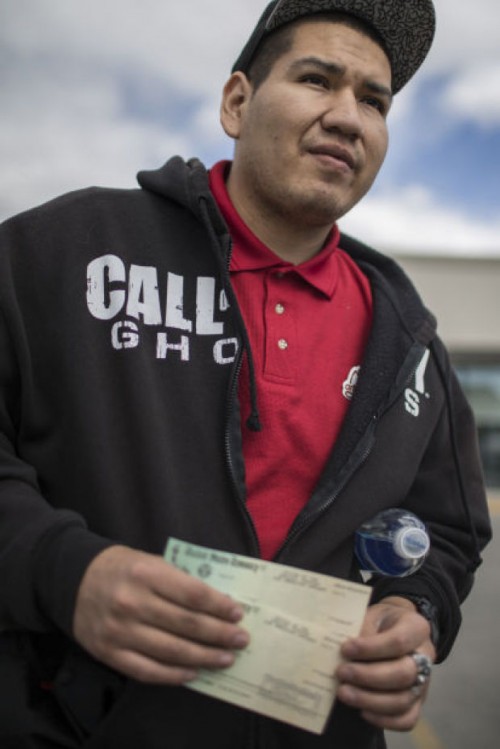By Ben Neary, The Associated Press
The Northern Arapaho Tribe is seeking to exclude one of its members from participating in a lawsuit over the boundary of the Wind River Indian Reservation.
Andrew Yellowbear, Jr., is serving a life sentence in state prison in connection with the 2004 murder of his young daughter in Riverton.
State and federal courts have rejected Yellowbear’s claim that the state lacked jurisdiction to prosecute him on the grounds that Riverton remained Indian County. He’s seeking to get involved in the current boundary dispute in yet another attempt to get his conviction overturned.
A federal appeals court in Denver is hearing the state of Wyoming’s appeal of the U.S. Environmental Protection Agency’s determination that more than 1 million acres around Riverton remain legally “Indian Country.”
The EPA recently determined that a 1905 act of Congress that opened reservation lands to settlement by non-Indians didn’t serve to remove the land’s legal status as Indian Country. The Northern Arapaho and the Eastern Shoshone Tribe share the reservation in central Wyoming.
Aided by Diane Courselle, a law professor at the University of Wyoming, Yellowbear recently filed papers seeking to file a “friend of the court” brief in the current boundary dispute.
Courselle, in her proposed brief in the case, says the boundary issue is, “crucial to the determination of whether Wyoming had jurisdiction to prosecute Mr. Yellowbear or whether the United States has exclusive jurisdiction.”
The EPA addressed the boundary issue in approving an application from the tribes to treat the reservation similarly to a state in terms of consulting with them about air quality issues. Wyoming, as well as Riverton and Fremont County, are opposing the federal agency’s decision, saying it would have drastic effects on taxation and provision of government services in the disputed area.
Although Yellowbear seeks to side with the tribes’ position that the disputed land remains in the reservation, both tribes filed notice that they oppose his involvement. The Northern Arapaho Tribe filed a brief and Riverton and Fremont County filed a joint brief on Friday spelling out their opposition to his involvement.
“We do not want our legitimate efforts to protect our reservation boundaries to be aligned with someone who does not have the tribe’s best interests at heart and is simply trying to get out of jail,” said Darrell O’Neal, a member of the Northern Arapaho Business Council, in a statement.
Dean Goggles, chairman of the Northern Arapaho Business Council, issued a statement saying that Yellowbear “is just muddying the waters and offers not new facts or viewpoints.”
Efforts to reach Courselle were unsuccessful Friday. Efforts to reach a lawyer for the Eastern Shoshone Tribe were also unsuccessful.
In their briefs, the Northern Arapaho, Riverton and Fremont County state that federal law is clear that Yellowbear’s state court conviction would stand even if the courts rule that Riverton remains Indian Country.
As a state prisoner, Yellowbear has filed several legal challenges seeking access to Native American religious materials and facilities. The American Civil Liberties Union represented Yellowbear in a 2008 federal lawsuit against the Wyoming Department of Corrections that secured his right to have eagle feathers in prison.



